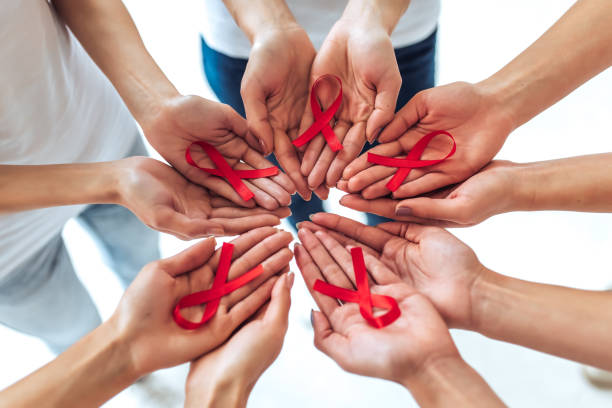May 10, 2023

HIV attacks the immune systems and could cause acquired immunodeficiency
syndrome (AIDS). HIV can be spread via intimate contact, sharing needles,
injecting devices or other instruments as well as mother-to child transmission
during birth, pregnancy or nursing. Human Immunodeficiency Virus can be avoided
through taking specific precautions. Take these 8 steps to avoid Human
Immunodeficiency Virus.
Take a test
Being aware of the details of your Human Immunodeficiency Virus situation is
the very first step in preventing Human Immunodeficiency Virus. Be tested for
HIV frequently, particularly when you are involved in dangerous behaviors like
unprotected sex as well as sharing needles. The test is quick, simple and
secure. Tests are available at many places, such as your physician's office,
clinics, community centers and mobile testing units.
Use safe Sexual sex
Condoms must be utilized every time you engage in sexual activity to help
reduce your risk of HIV or other sexually transmissible illnesses. Make use of
silicone or water-based lubricants in condoms to avoid tearing or breaking.
Shared sex toy can spread Human Immunodeficiency Virus, STIs and more. To
discover more details on HIV, you have to visit aids2010.org/ site.
Consider pre-exposure prophylaxis (PrEP)
PrEP, a daily pill which can reduce the risk of Human Immunodeficiency Virus
disease by as high as 99percent. PrEP is recommended for people at high-risk of
Human Immunodeficiency Virus infection. This includes those with Human
Immunodeficiency Virus positive partners, who have unprotected sexual activity
as well as those who have shared syringes or needles. Discuss with your doctor
for advice on whether PrEP is appropriate for you.
Make sure to use needles that are clean and safe
If you are taking medications, don't share needles or Syringes. To lower the
chance of contracting HIV or other bloodborne illnesses ensure that you only use
sterile needles and syringes. You can get free sterile needles and syringes from
local health clinics or the syringe exchange program.
Other STIs are also treatable
A second STI can increase the risk of HIV transmission. Treat
and test for additional STIs like Chlamydia and gonorrhea. Use condoms during
sex while you're being treated to treat an STI.
Do not share personal items
HIV can be transmitted through blood on personal items such as razors,
toothbrushes, or needles. Don't share items which could contain blood on
them.
Consider post-exposure prophylaxis (PEP)
If you think you may have been exposed to HIV take medical advice
immediately. Post-exposure prophylaxis (PEP) can be a medication which can lower
the chance of Human Immunodeficiency Virus transmission if used within 72 hours
after exposure. Health professionals, those who have suffered from rape and
others who was exposed to sexual contact with an HIV-positive person are
recommended to take PEP.
Disclose your status
If you are HIV-positive be sure to disclose the status of your Human
Immunodeficiency Virus-positive self to your sexual partners and those you share
needles with. You can prevent Human Immunodeficiency Virus from spreading
further and get medical assistance and treatment.
HIV can be treated and stopped. It is possible to protect yourself and lower the chance of Human Immunodeficiency Virus by having regular tests by practicing safe sexual activity and evaluating PrEP and PEP. Use sterilized needles and Syringes. Be treated for other STIs. Avoid sharing personal items.
Posted by: VincentBusiness at
06:31 AM
| No Comments
| Add Comment
Post contains 553 words, total size 4 kb.
35 queries taking 0.0934 seconds, 84 records returned.
Powered by Minx 1.1.6c-pink.









